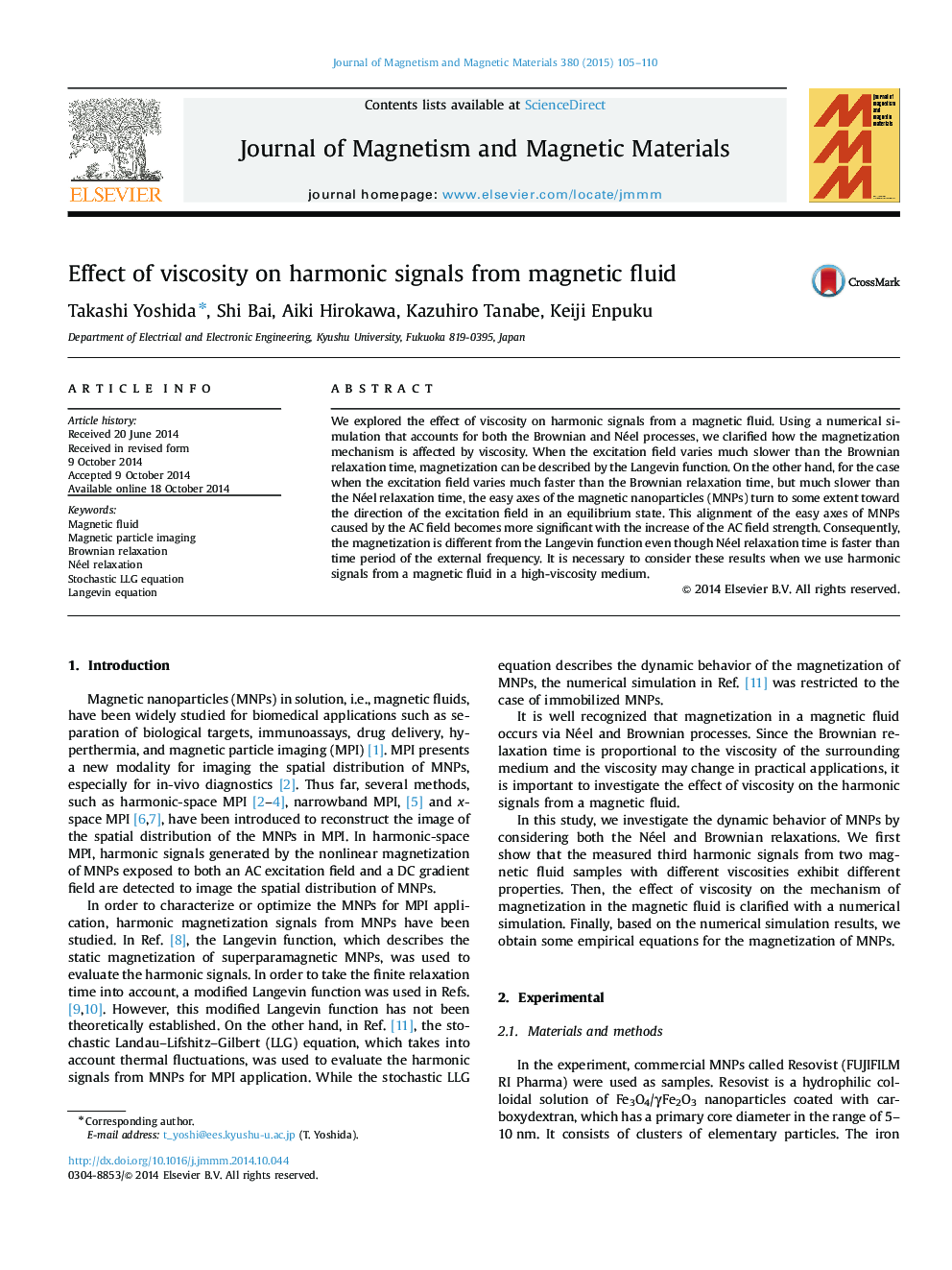| Article ID | Journal | Published Year | Pages | File Type |
|---|---|---|---|---|
| 1798864 | Journal of Magnetism and Magnetic Materials | 2015 | 6 Pages |
•We explore the effect of viscosity on harmonic signals from a magnetic fluid.•We clarify how the magnetization mechanism is affected by the viscosity of the fluid.•The magnetization in a high-viscosity medium is different from a Langevin function.•We empirically express the alignment of easy axes of the MNPs caused by an AC field.
We explored the effect of viscosity on harmonic signals from a magnetic fluid. Using a numerical simulation that accounts for both the Brownian and Néel processes, we clarified how the magnetization mechanism is affected by viscosity. When the excitation field varies much slower than the Brownian relaxation time, magnetization can be described by the Langevin function. On the other hand, for the case when the excitation field varies much faster than the Brownian relaxation time, but much slower than the Néel relaxation time, the easy axes of the magnetic nanoparticles (MNPs) turn to some extent toward the direction of the excitation field in an equilibrium state. This alignment of the easy axes of MNPs caused by the AC field becomes more significant with the increase of the AC field strength. Consequently, the magnetization is different from the Langevin function even though Néel relaxation time is faster than time period of the external frequency. It is necessary to consider these results when we use harmonic signals from a magnetic fluid in a high-viscosity medium.
